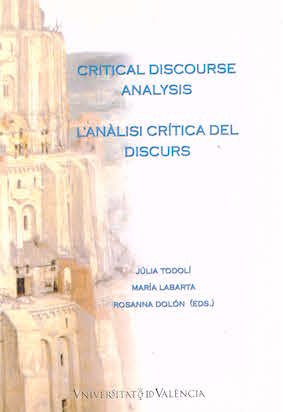Norma lingüística e reprodução social
DOI:
https://doi.org/10.7203/qfilologia.11.5052Paraules clau:
Anàlisi Crítica del Discurs, mitjans de comunicació, ideologia, llengua, prejudici lingüístic Resum
Resum
Aquest article analitza el paper dels mitjans de comunicació escrits en les normes lingü.stiques partint dels pressupòsits teòrics de l’Anàlisi Crítica del Discurs (Fairclough, 1992 i Chouliaraki & Fairclough, 1999). El conjunt de referències teòriques integra les formes simbòliques que ajuden a establir o recolzar relacions de dominació enteses com a ideològiques (Thompson, 1995). L’anàlisi ens permet inferir que, en bona mesura, aquest discurs té un caràcter ideològic, atès que reforça percepcions, creences i actituds que contribueixen a mantenir inalterats els prejudicis lingü.stics. Tanmateix, en menor mesura, el discurs ha estat usat com una forma de resistència a les asimetries de poder i concentració de valors. L’anàlisi pot contribuir a entendre la interacció entre llengua i pràctica social.
 Descàrregues
Descàrregues
Descàrregues
Publicades
Com citar
-
Resum253
-
PDF (Español)119
Número
Secció
Llicència
 Este obra está bajo una licencia de Creative Commons Reconocimiento-NoComercial-SinObraDerivada 4.0 Internacional.
Este obra está bajo una licencia de Creative Commons Reconocimiento-NoComercial-SinObraDerivada 4.0 Internacional.
Tots els documents inclosos a OJS són d'accés lliure i propietat dels seus autors i/o institucions editores, i per tant, qualsevol acte de reproducció, comercialització, comunicació pública o transformació total o parcial necessita el consentiment exprés i escrit d'aquests.
Authors who publish with this journal agree to the following terms:
- Authors retain copyright and grant the journal right of first publication with the work simultaneously licensed under a Creative Commons Attribution License that allows others to share the work with an acknowledgement of the work's authorship and initial publication in this journal.
- Authors are able to enter into separate, additional contractual arrangements for the non-exclusive distribution of the journal's published version of the work (e.g., post it to an institutional repository or publish it in a book), with an acknowledgement of its initial publication in this journal.
- Authors are permitted and encouraged to post their work online (e.g., in institutional repositories or on their website) prior to and during the submission process, as it can lead to productive exchanges, as well as earlier and greater citation of published work (See The Effect of Open Access).



